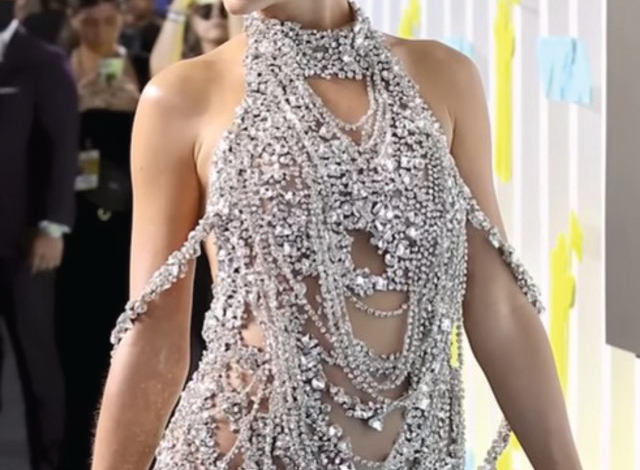
‘The Great War’ of buying Taylor Swift tour tickets
By Adrianna Jaccoma
WHEN Taylor Swift wrote “The Great War” for her newest album “Midnights” did she know that her fans would use the song literally when describing their experience getting tickets to her tour?
Swift has not toured since 2018 for her sixth studio album “Reputation,” and was supposed to tour after her seventh studio album “Lover” came out, but was canceled due to the COVID-19 pandemic.
Since the last time Swift toured, she has released five albums: “Folklore,” “Evermore,” “Midnights,” “Fearless (Taylor’s Version)” and “Red (Taylors Version).”
Swifties, a term coined for her fans, were eager for her to travel the world again, and knew it would be a bloodbath to get tickets (and as you can probably guess from the title, it was.)
Taylor’s team partnered with Ticketmaster to set up a Verified Fan purchase, which they have done in the past. The process asked people interested in buying tickets to fill out their contact information, what show (or shows) they were interested in attending and how many tickets they were requesting. This process was intended to keep the tickets away from bots and resellers. It was then randomly decided who would get tickets.
On Nov. 1, Swift announced that she was going on tour, and the website to sign up for Verified Fan presale went live, to the excitement of many.
Personally for me, I was with my friend at the time and both of us were able to sign up for the presale within minutes. But later, I heard on social media that the wait to get into a website was at least 30 minutes. This would eventually foreshadow how the process of getting tickets would go.
Two weeks later on Nov. 14, the emails and text messages started coming through from Ticketmaster. The emails informed individuals of what show they were approved for, and everyone approved got a personalized link to buy their tickets from.
And then the games began.
The next morning on Nov. 15 at 10 a.m., tickets for the tour titled “The Era’s Tour” went on sale. I remember getting launched into the queue at 10 a.m. and seeing there were more than 2,000 people ahead of me. I thought that the process would be quick: It was not. The queue remained for about an hour.
While the queue was paused, I remember seeing screenshots on social media of resale sites like SeatGeek and StubHub where tickets for the tour were already being re-sold for at least $1,000. The process of trying to keep resellers and bots away so fans would be able to see Swift seemingly didn’t work. By 1 p.m. that day, I made it to the screen to buy tickets. The map showed that there were still tickets available, but every time I tried to check out with said available tickets, it said those were unavailable. I had no choice but to give up and try again on Friday (the general on-sale.)
The same day at 1:30 p.m., there was supposed to be another presale specifically for CapitalOne card holders. But due to the fact that there were no more tickets available and people were still in the queues, the CapitalOne presale was pushed to the next day, Nov. 15, and when that pre-sale ended, all the tickets were gone.
The third and final sale was the general on-sale that was set to take place on Nov. 18, but the day prior to the sale, Ticketmaster released a statement via Twitter stating that the public on-sale would be canceled. They claimed that there was an insufficient amount of tickets to meet the demand for the general on-sale. This statement from Ticketmaster made it seem like there would not be another chance for people to buy tickets.
At this point, I felt defeated, upset and cheated by Ticketmaster, but I had hope that I would be able to get tickets.
When I woke up on the morning of Dec. 12, the first thing I saw was a strange email from Ticketmaster. The general basis of the email was any “Verified Fan” who didn’t get tickets during the presale was able to sign up to get two tickets to the show they were verified for.
At first I was suspicious. I did not know why I was getting this email and was weary as to if I was being scammed or not. But after seeing that the sender of the email was legit and finding out other people received the email, I signed up to get tickets.
So finally, a month after this whole fiasco started, on Dec. 18, I finally was in possession of tickets to “The Eras Tour.”
“The Great War” of getting tickets might be over, but who knows what else will occur when the tour takes off.



